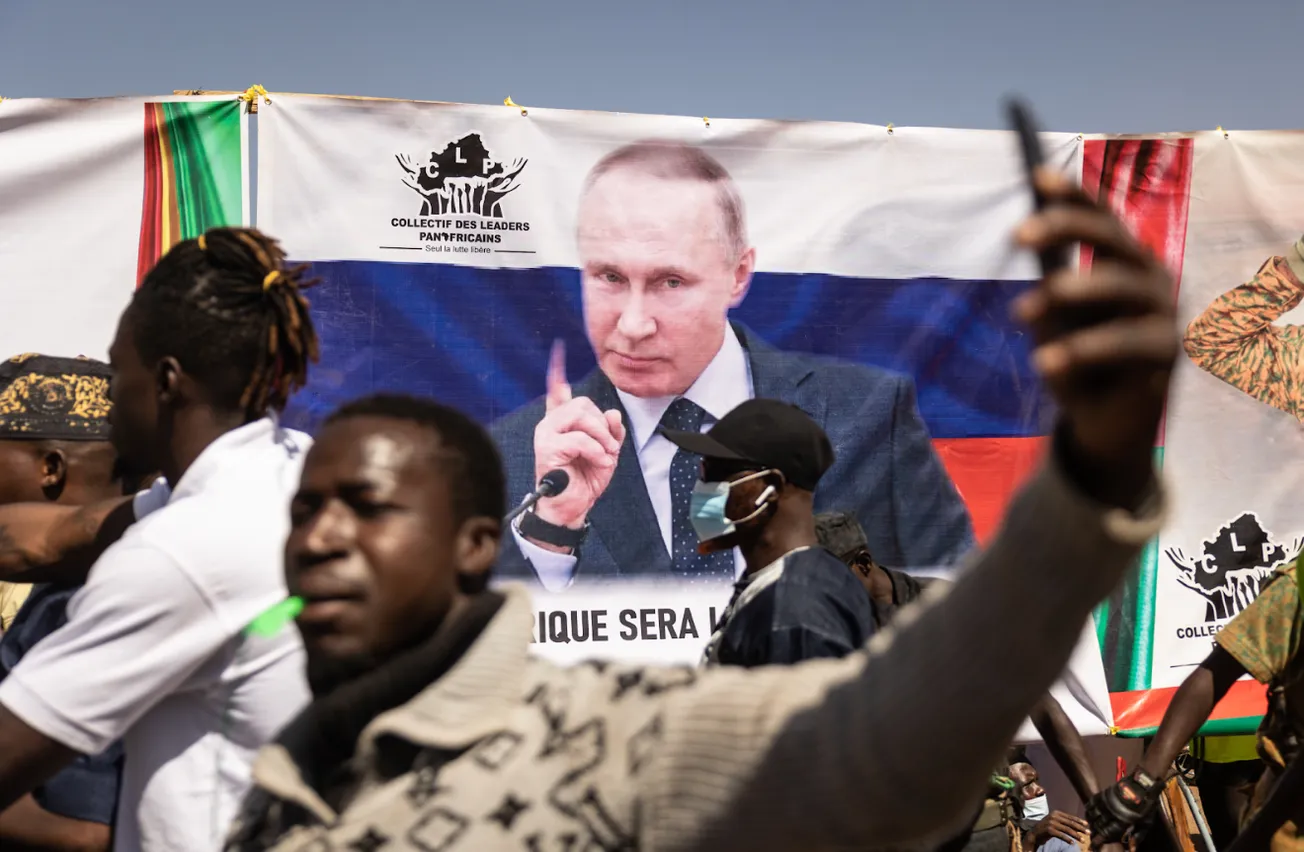Table of Contents
A new wave has swept across West Africa, and we, the West, would be foolish not to read it for what it is. In the past few years, three francophone countries in the Sahel—the dry region just below the Sahara—Mali, Burkina Faso, and Niger, have fallen to military coups. These aren’t isolated events but a clear rejection of the post-colonial order.
Almost immediately, the new juntas cemented an anti-Western alliance via the Liptako-Gourma Charter, a mutual defence agreement signed in 2023 pledging support against any external aggression. It was a direct rebuke to Western-backed institutions and a clear signal that the Sahel is straying away from the West.
And guess what? We shouldn’t be surprised. After years of hosting French troops to fight terrorism, Mali and Burkina Faso expelled France’s forces and envoys. In 2022, Burkina Faso’s government asked France to recall its ambassador, then demanded that all French troops withdraw from the country. Similarly, Mali pulled all French soldiers from their country in August 2022 after a decade of failing to quell jihadists. By 2023, even Niger saw its new military rulers order French troops and the French ambassador to leave. France’s post 9/11 military intervention has now become a symbol of humiliation.
The leaders of the West were bewildered at this chain of events. In their eyes, the Sahel’s new leaders are puppets of the Kremlin and the Chinese. Indeed, French officials insist that anti-French sentiment was generated by Moscow to drive France out. But this convenient story absolves Western policy makers of their own failures. The reality is that the anger against France and the West is grounded in truth. A French-led military mission that began in 2013 was a complete failure, and ordinary Sahelians saw schools and clinics shut down and their villages massacred by jihadists.
Beyond the security failure, there was also a major collapse of Western soft power and moral authority in the region. For years, American and French diplomats preached democracy and human rights to their African counterparts. Yet in 2021, after Chad’s longtime dictator Idriss Deby died, his son seized power in a blatant military takeover. France and other major powers responded by endorsing the new junta while imposing sanctions against coup leaders in Mali. Such a double standard did not go unnoticed, making Western liberalism look cheap and hypocritical.
The same occurred in economic relations. France maintained tight control over the currency and resources of its former colonies through the CFA franc and mining concessions. This enriched French firms while youth unemployment and frustration grew in the neo-colonies. In Niger, for instance, a French company, Orano, held rights to one of the world’s largest uranium deposits, powering France’s nuclear plants while Niger’s citizens still remained among the poorest people on Earth. After the coup, Orano’s license was revoked.
This vacuum prompted China and Russia to capitalize on the West’s failure. Together, they had one strategy in mind: to offer African countries what the West would not.
For Moscow, their opening was security. In countries with insurgency, Russian military advisors replaced France as the new patron. After Mali’s second coup in late 2021, Wagner Group mercenaries were deployed to help Mali’s army fight jihadists. Shipments of arms followed. As a result, the Malian junta hailed Russia as a more reliable ally than France, and Wagner was given lucrative mining concessions. Although Russia has been nearly as unsuccessful as France in fighting terrorism, its unwavering support for the regime was a worthwhile tradeoff for these embattled Sahel regimes. And to the ordinary people, Russia at least appears to be treating African governments as sovereign equals, unlike the West.
Meanwhile, in Beijing, China has been chasing its own ambitions. Their opening was development. China offered the resources and consultants to build roads, railways, and resource access. When Niger wanted to export its crude oil, Western investors were not able to justify the staggering infrastructure costs yet China’s state oil corporation CNPC stepped in and poured over $5 billion to develop Niger’s oilfields, construct a refinery, and build a 1,950-kilometer pipeline through the savannah to the Benin coast - the longest oil pipeline in Africa. Chinese companies are also deep inside Niger’s uranium sector and entrenched in its oil production. In Burkina Faso, China has bankrolled a high-tech surveillance and communications network that spans hundreds of kilometers. Chinese tech giants like Huawei are laying 650 kilometers of fiber optic cables and installing 900 surveillance cameras across the country. The rationale was to help their new allies fight against jihadists and criminals. Unlike the West, China will do what it takes despite the risks to score both profit and heavy influence.
None of this is said to applaud Moscow or Beijing. It is said because the hard fact is that African governments and many of their people perceive these partnerships as a better deal than the status quo with the West. This is despite the reality that Russia’s approach is predatory and China’s projects often come with opaque contracts and debt risks.
But perception is power. And right now, the West is losing that battle.
We live in a competitive world and soft diplomacy simply doesn’t work. As China and Russia have aggressively pursued, the United States and its allies must begin contributing hard, tangible offerings like investment, infrastructure, and strategic partnerships. If we retreat, we will signal to the Global South that the West is unreliable. And once that perception sets in, they will logically pursue their own interests, aligning themselves with allies who are willing to help them, regardless of whether they are Western or not.
We need to let those allies be us. The Global South is where the next century’s resources, population, and economic growth will come from. It is to our advantage for them to align with us. Thus, we must act with deliberation, direction, and force to reclaim Western influence.





